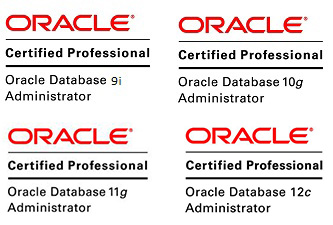How to import the table by using the impdp in Oracle Database 11gR2(11.2.0.4)
Posted by Mir Sayeed Hassan on August 9th, 2020
How to import the table by using the impdp in Oracle Database 11gR2(11.2.0.4)
In this scenario, I am going to import at the table “test1” in schema “MIRTEST” from the given dumpfile
Create a directory at OS Level
[oracle@testdb ~]$ mkdir -p /u01/dump/
Give the permisssion for directory & verify the Ownership
[oracle@testdb ~]$ chmod 775 /u01/dump/
[oracle@testdb_new u01]$ ll drwxrwxr-x. 2 oracle oracle 6 Aug 9 20:05 dump
Create a directory at Database Level
SQL> create directory dump as '/u01/dump'; Directory created.
SQL> grant read,write on directory dump to system; Grant succeeded.
Transfer the Dumpfile to the /u01/dump location & start importing it
[oracle@testdb_new dump]$ ls table_test1.dmp table_test1.log
Note: The Above dumpfile which contain the table data, need to be restore in this database which is not exist in destination database
Verify the table “TEST1” exist in schema “MIRTEST” or not
SQL> select table_name from dba_tables where owner='MIRTEST'; TABLE_NAME ---------- TEST2
Note: Here the table “test1” does not exist, so need to restore from the dumpfile.
Start import the table “TEST1” in schema MIRTEST
[oracle@testdb_new dump]$ impdp system directory=dump dumpfile=table_test1.dmp logfile=imp_table_test1.log Import: Release 11.2.0.4.0 - Production on Sun Aug 9 20:48:18 2020 Copyright (c) 1982, 2011, Oracle and/or its affiliates. All rights reserved. Password: Connected to: Oracle Database 11g Enterprise Edition Release 11.2.0.4.0 - 64bit Production With the Partitioning, OLAP, Data Mining and Real Application Testing options Master table "SYSTEM"."SYS_IMPORT_FULL_01" successfully loaded/unloaded Starting "SYSTEM"."SYS_IMPORT_FULL_01": system/******** directory=dump dumpfile=table_test1.dmp logfile=imp_table_test1.log Processing object type TABLE_EXPORT/TABLE/TABLE Processing object type TABLE_EXPORT/TABLE/TABLE_DATA . . imported "MIRTEST"."TEST1" 16.81 KB 107 rows Job "SYSTEM"."SYS_IMPORT_FULL_01" successfully completed at Sun Aug 9 20:48:22 2020 elapsed 0 00:00:01
Verify the Newly imported table “TEST1” in schema “MIRTEST”
Verify Users
SQL> select table_name from dba_tables where owner='MIRTEST'; TABLE_NAME ----------- TEST1 TEST2 Note: TEST1 TABLE IS IMPORTED FROM THE GIVEN DUMPFILE
SQL> select count(*) from mirtest.test1; COUNT(*) ------- 107





